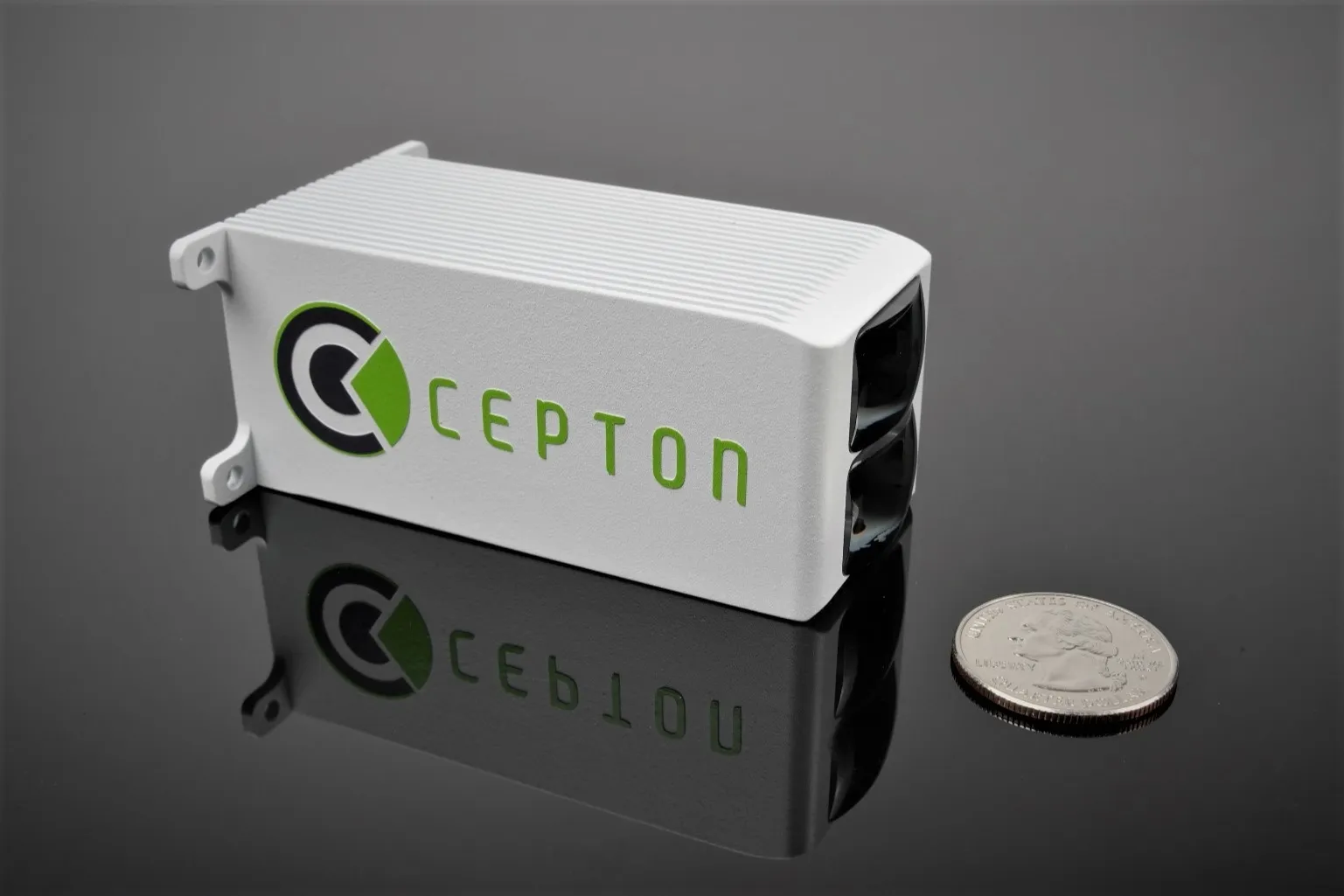
Cepton Technologies has announced it is to manufacture a cheap, miniature Lidar sensor – the Nova.
Designed for high volume automotive applications, including advanced driver assistance systems (ADAS) and autonomous vehicles (AVs), the wide-angle, near-range Lidar will cost less than $100.
The company says: "Nova is ideally suited for accurate detection of objects in proximity, such as small children, on-road objects, road edges, stationary objects and more."
The product features 3D imaging with a high field of view (FOV) of 90-120° (H) and 60-90° (V), depending on configuration.
Last year, Cepton announced its $1,000 Lidar, Vista-X90.
CEO Dr Jun Pei believes that radar, camera and Lidar will coexist on all cars in future and has worked on enabling easy integration of its Lidars in the next generation of automobiles: Nova has a Lidar target size of 3.5 cm (W) x 3.5 cm (H) x 7.5 cm (D), and weighs less than 350g
“Currently, consumer vehicles have been limited to technologies that cannot facilitate true Level 3 or Level 4 autonomy for the mass market," he says.
"Radars, cameras and ultrasonic sensors suffer from high false positives and false negatives. Rotational Lidars are not embeddable, making them impractical for consumer vehicles. Near-range flash Lidars either lack the wide field of view or cannot match the power and size requirements to be discretely hidden all around the vehicle."
Non-rotational, mirrorless, and frictionless, Nova is powered by Cepton’s patented Micro Motion Technology (MMT), and can provide a complete 360° view of a vehicle's immediate surroundings, the firm says.
It has an angular resolution of up to 0.3° with a maximum range of up to 30m, which the company says makes it ideal for ADAS and AV applications such as blind spot detection, small object detection, automated park assist and free space estimation around the vehicle.
This year, Nova will only be available to customers as part of Cepton’s Early Access Program, with production scheduled to begin in earnest in 2023.







